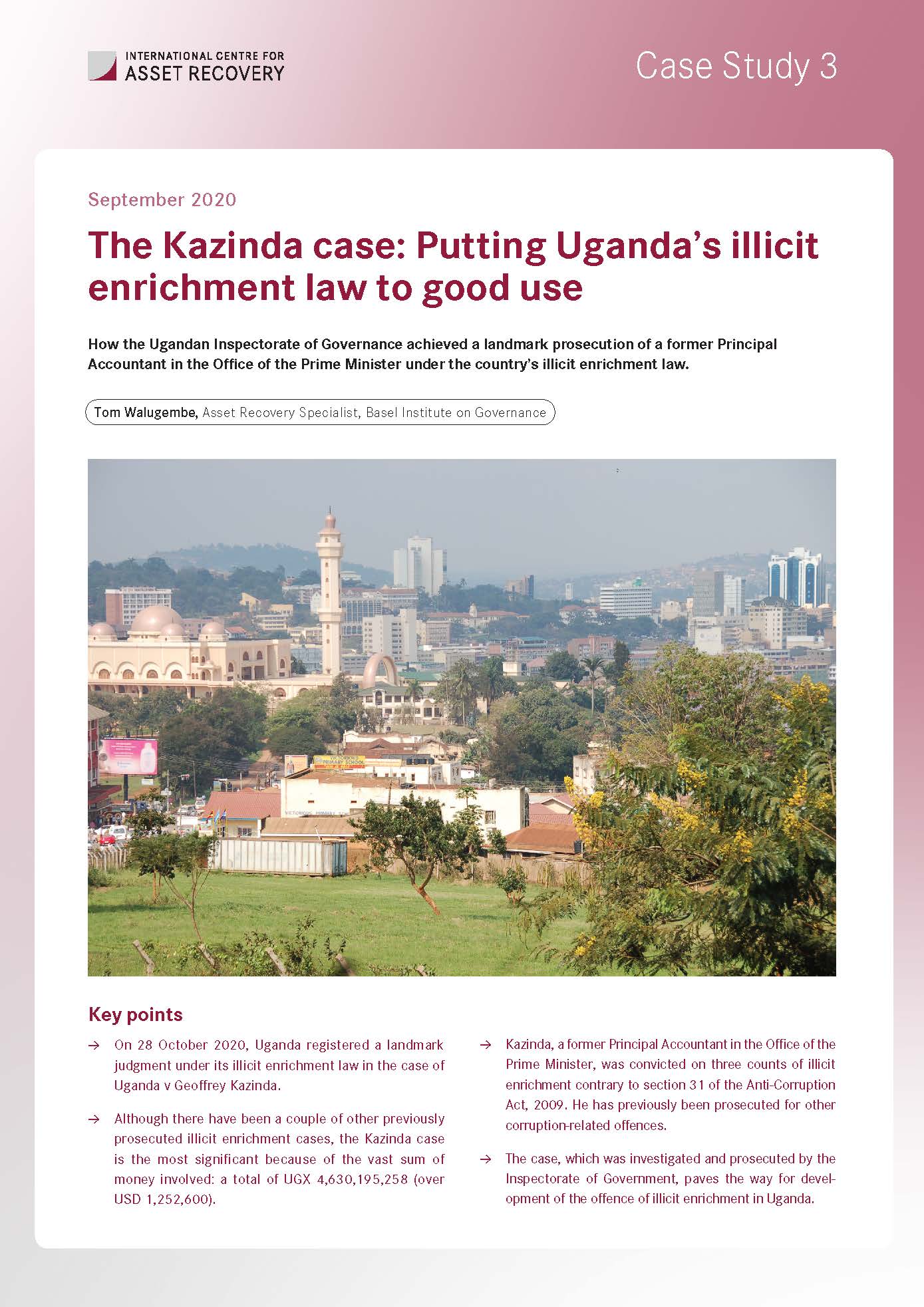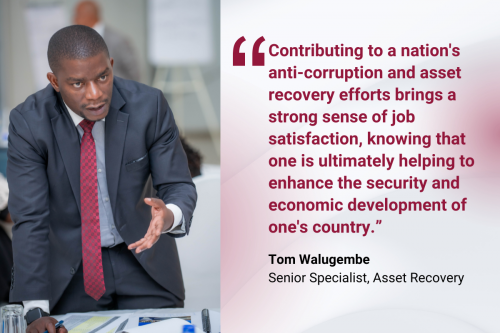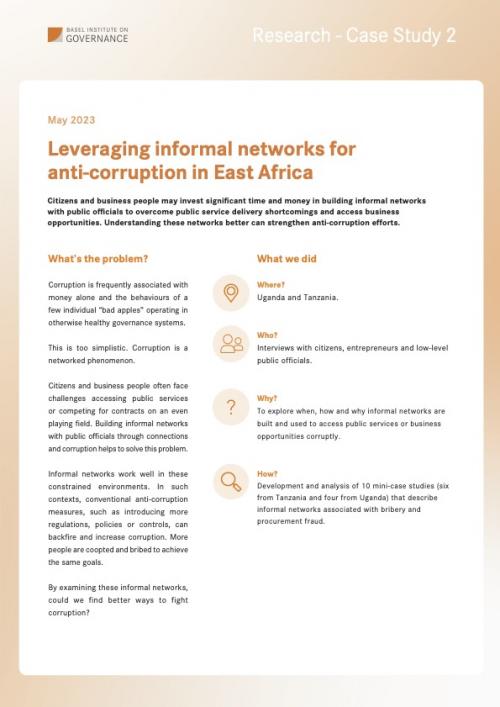Case Study 3: The Kazinda case: Putting Uganda’s illicit enrichment law to good use
This case study explains how the Ugandan Inspectorate of Governance achieved a landmark prosecution of a former Principal Accountant in the Office of the Price Minister under the country’s illicit enrichment law.
On 28 October 2020, Uganda registered a landmark judgment under its illicit enrichment law in the case of Uganda v Geoffrey Kazinda. Although there have been a couple of other previously prosecuted illicit enrichment cases, the Kazinda case is the most significant because of the vast sum of money involved: a total of UGX 4,630,195,258 (over USD 1,252,600).
Kazinda, a former Principal Accountant in the Office of the Prime Minister, was convicted on three counts of illicit enrichment contrary to section 31 of the Anti-Corruption Act, 2009. He has previously been prosecuted for other corruption-related offences.
The case, which was investigated and prosecuted by the Inspectorate of Government, paves the way for development of the offence of illicit enrichment in Uganda.
Open-access licence and acknowledgements
This publication is part of the Basel Institute on Governance Case Study series, ISSN 2813-3900. It is licensed for sharing under a Creative Commons BY-NC-ND 4.0 licence.
The Case Study series offers practitioners insights into interesting and precedent-setting cases involving corruption and asset recovery. Many such cases are drawn from partner countries of the Basel Institute's International Centre for Asset Recovery.
Suggested citation: Walugembe, Tom. 2020. “The Kazinda case: Putting Uganda’s illicit enrichment law to good use.” Case Study 3, Basel Institute on Governance. Available at: baselgovernance.org/case-studies.
Links and other languages



